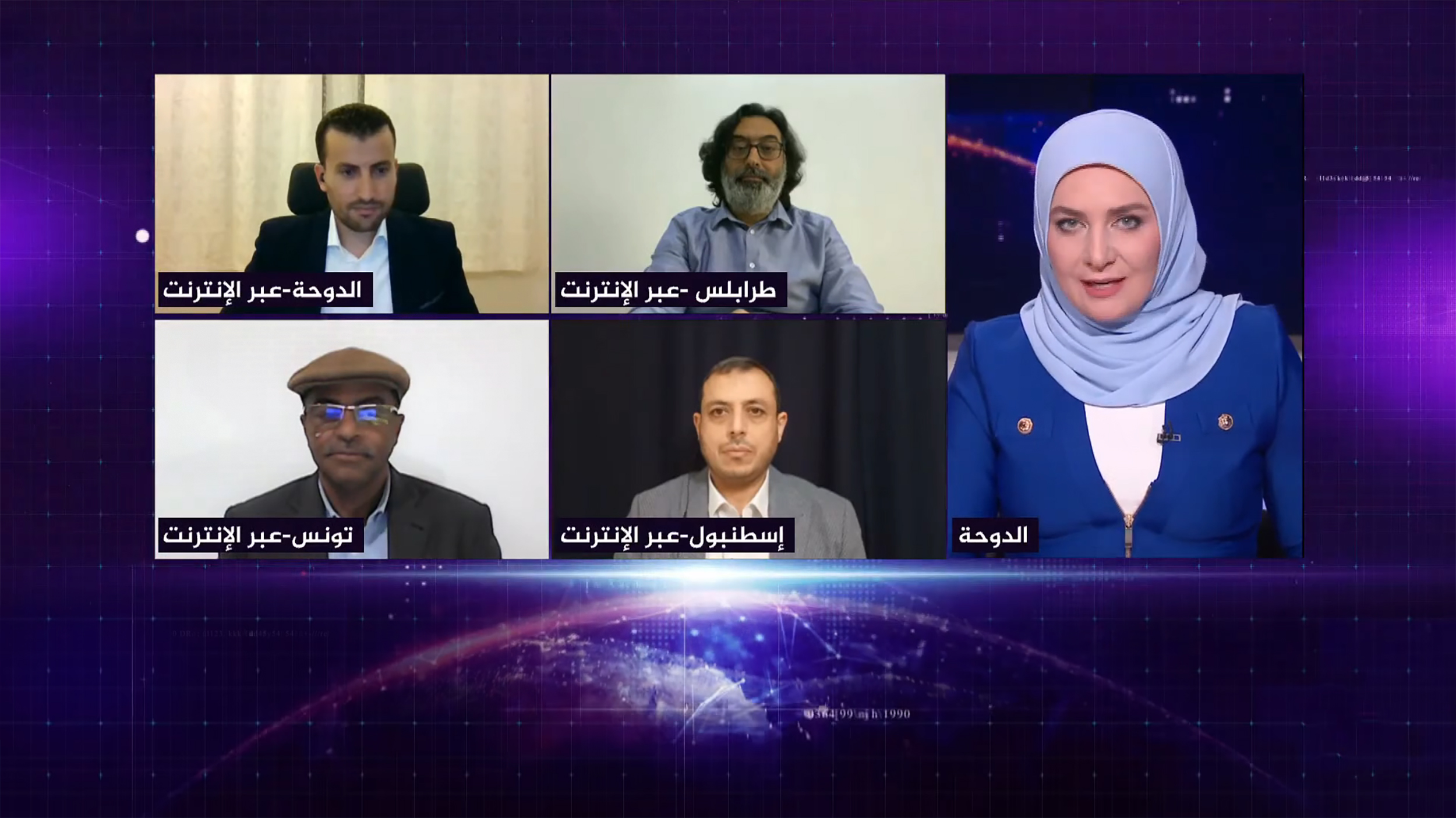
A webinar organised by Al Jazeera Centre for Studies in collaboration with Al Jazeera Mubasher on 17 February 2022 under the title, “Prospects for Solving the Libyan Crisis in 2022,” maintained that the depth of the crisis, the severity of division and the conflict of interest make the upcoming presidential elections – if they are even held – unlikely to be the guaranteed means of restoring security and stability in Libya. This is due to the presence of active parties in the current Libyan scene that consider a deep-rooted political settlement a death sentence because there will no longer be a justification for their existence, as is the case for the Parliament and the Supreme Council of State, according to the webinar speakers.
In addition, the speakers ruled out the likelihood that the recent dispute between the former Minister of Interior, Fathi Bashagha, and the Prime Minister of the interim government, Abdul Hamid Dbeibeh, over running in the presidential elections would lead to an armed conflict. This, the speakers maintained, is because of Turkey’s mediation efforts, which may prove to be successful, as well as the desire of each of them to become the legitimate president of the entire country, rather than be recognised by only a part of it and unrecognised by the rest. Moreover, both of them are from Misrata, and the regional dimension is of importance in Libyan society.
The webinar was broadcast on Al Jazeera Mubasher and live-streamed on AJCS’s social media platforms. Its participants were: Ismail Gritli, Abdul Rahman al-Gharari, Abdul Salam al-Rajhi and al-Hussain al-Sheikh al-Elwi. During the webinar, they pointed to a number of challenges facing Libya alongside the aforementioned presidential elections, such as the absence of a political culture that enables Libyans to have a dialogue that could lead to consensus. They attributed this to the weak political upbringing resulting from Gaddafi’s long rule and the features of intellectual and political unilateralism and political isolation that characterise society. They also attribute it to the absence of well-established institutions that can manage the interests of citizens and protect the cohesion of the state from disintegration and collapse as well as the chronic problem of identity, about which narratives differ not only at the level of the region but also at the level of the city.
The participants concluded that Libya needs more dialogue in order to build social understandings that guarantee political settlements; and that if settlements are weak and temporary, the country will quickly go back to the state of conflict and division it had known.
The webinar can be viewed (in Arabic) here.